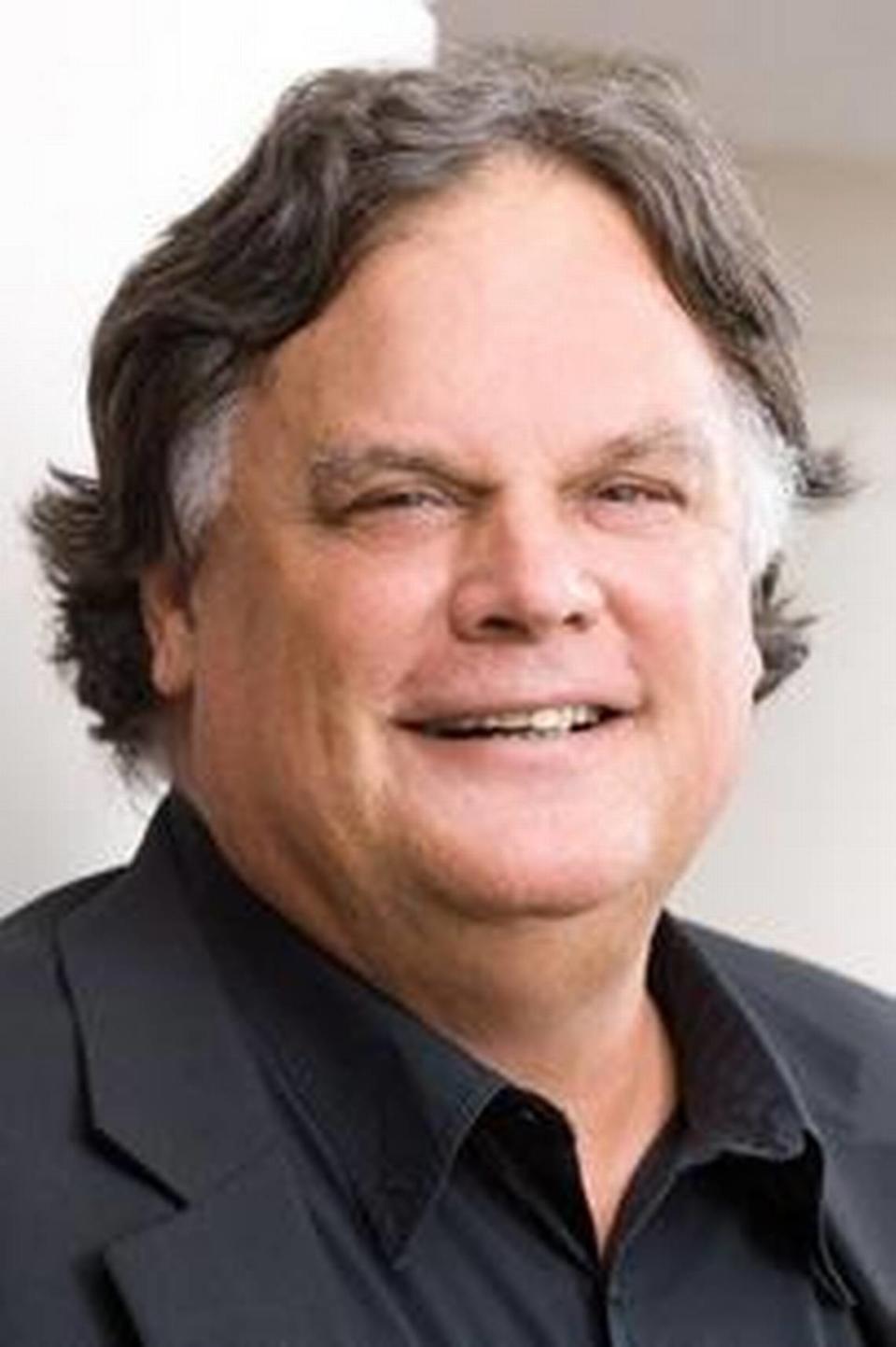While men ran for cover, women rose and stared down Donald Trump | Opinion
- Oops!Something went wrong.Please try again later.
- Oops!Something went wrong.Please try again later.
- Oops!Something went wrong.Please try again later.
I’m much taken with a particular photograph of Nancy Pelosi. It’s from October 2019. In it, Pelosi stands across the White House Cabinet Room pointing an accusing finger at a seated Donald Trump. The president and the speaker are only a few feet apart. Still, Pelosi is resolute, undaunted. Punctuating a heated foreign policy disagreement, she was reportedly saying that, with Trump, “all roads lead to Putin.” Frosty and fearless.

But that’s not what I find most remarkable about the photo. Pelosi and Trump were not alone in the room. They were surrounded by executive officials and congressional leaders. None, except Pelosi, seemed comfortable with the turn of events. The AP reported:
“Eyeballs – most belonging to men – are averted. Heads are bowed around the table, including those of Joint Chief of Staff Chairman, Mark Milley and House Republican Whip Steve Scalise. House GOP Leader Kevin McCarthy’s eyes are closed. Senate Republican Leader Mitch McConnell is leaning back, a few chairs down from Trump.”
As the males looked for cover, Pelosi rose, and led.
It reminded me of video clips I’d seen from the Oval Office. President Trump would meet in the lavish room with Speaker Pelosi and Senate Majority Leader Chuck Schumer to hammer out their multifaceted differences. Schumer might be energetic and forceful at the press conference afterwards, beyond the confines of the famous building. But when sitting across from Trump, Schumer seemed afraid to look him in the eyes. Only Pelosi fixed her gaze on the bully. Brave, resolute, mission-driven. Never, even for a moment, contemplating fear. Courage occupied only one seat in those meetings. And it wasn’t companion to the males.
The picture I describe points to a growing reality - the outsized role of women in modeling courage, teaching fearlessness, in the new American battle for democracy. We’ve all seen this, thought of it, been marked and altered by it.
Liz Cheney stood not only against Trump, but almost every shamed and humiliated enabler of her caucus and political party. She put her leadership position and her congressional seat on the line in favor of her sacred oath and love of country. She did it all knowingly, without a conceivable doubt about what was to come. I can’t forget the words:
“Tonight I say this to my Republican colleagues who are defending the indefensible. There will come a day when Donald Trump is gone, but your dishonor will remain.”
Nathan Hale had nothing on Liz Cheney.
Ruby Freeman and Shaye Moss, election workers from Fulton County, Georgia, refused to surrender to the intimidation, slanders, and threats of Rudy Giuliani in one of modern America’s starkest contests between good and unrelenting evil. Their prior lives and attachments to beloved community had been sundered by darkness. Trump boasted on a fateful call to Brad Raffensperger that “Freeman’s reputation is done – she is known all over the internet for fraud.” But unlike the fabulist of Mar-a-Lago, Freeman and Moss’ character abides. It gleams. And teaches.
Cassidy Hutchinson, with astonishing stoicism, quietly insisted on the truth, under unspeakable pressure, as Mark Meadows hid, dissembled and conceded his powerlessness before the master — as if gutlessness is all one can expect from human beings.
And E. Jean Carroll, an 80-year-old sexual assault survivor, reclaimed her life, amid continuing taunts by Trump, even at the cost of having to face down her vile assailant. It’s not right to force “a woman to be quiet,” she explained. Even if supposed toughs depend on it.
If we see more women leaders, we’ll see more courage.
Contributing columnist Gene Nichol is a professor of law at the University of North Carolina-Chapel Hill.
